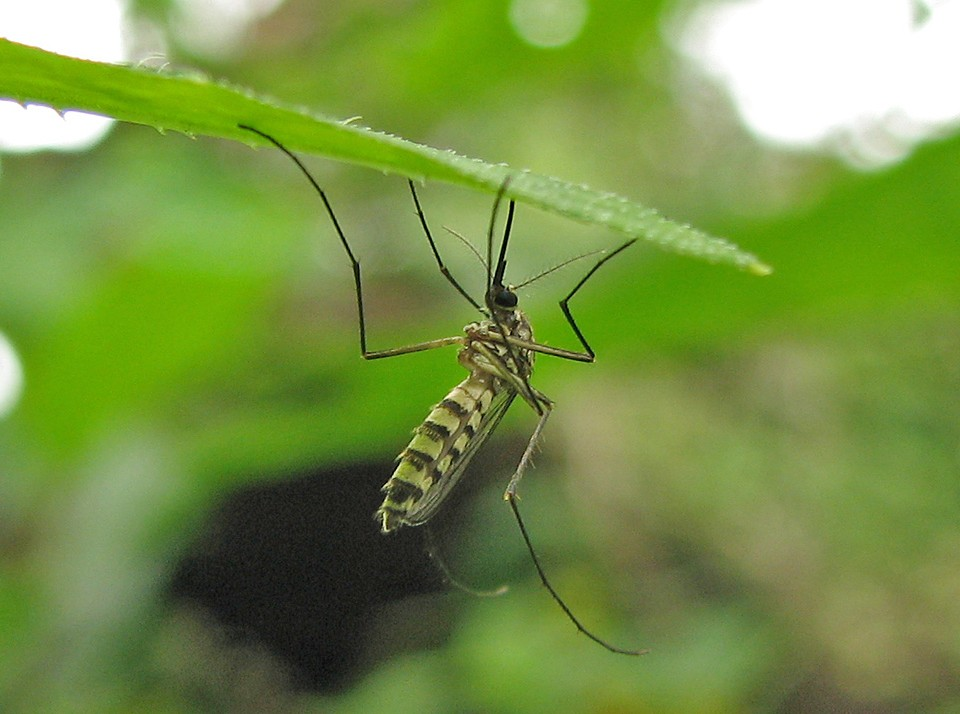
Living in the tropics is fun !. Sunshine throughout the year accompanied with intermittent heavy rains and thunderstorms that lives a fresh green lush everywhere. But, the joys of living in the tropics also bring greater exposure to the bugs including mosquitos, ticks, and stinging insects such as wasps and bees.
The majority of conventional insect repellent preparations contain a substance called DEET (N,N-diethyl-meta-toluamide) as the active ingredient. In 1998, the Environmental Protection Agency (EPA) concluded that DEET does not present a health concern as long as label directions are followed carefully and a list of “proper precautions” are observed with use, but many clinicians and consumers have concerns about potential toxicity with prolonged or repeated use in humans, including damage to the nervous system. Fortunately, for those seeking to avoid unecessary chemical exposure, there are a number of ways to minimize the risk of insect bites and stings so that you can enjoy outdoors without worry.
To avoid mosquitoes, it is helpful to consider their breeding and feeding habits. Mosquitoes prefer to lay eggs in moist soil and in areas of poor drainage and stagnant water. Taking care to eliminate areas of standing water around the home and yard can help to limit breeding grounds. Timing is another key consideration. Mosquitoes experience their peak appetites at dusk and dawn each day. Since Singapore has summer and intermittent rains all through the year, it is perfect for mosquitoes to breed in the hot and humid climates.
Careful selection of clothing and bodycare products may also afford some protection against insect bites. During peak feeding times and when spending time in wooded areas, it is helpful to wear long pants, tucking them into socks or shoes to minimize areas of exposure. Mosquitoes and stinging insects are attracted to dark and bright colors, while light colored or muted clothing may help to deter insects. Highly scented hair and body products are also attractive to some insects and may be best left out of your routine when you know you’ll be outside.
There are a number of natural remedies for keeping the bugs at bay. Essential oils derived from plants have long been regarded as natural insect repellents. These include peppermint, eucalyptus, citronella, cedar, rosemary, thyme, pennyroyal, lemon eucalyptus, and many others. Essential oil combinations are found in natural insect repellent products and it is relatively easy to make a mix of your own. Dr. Mary Bove recommends mixing together 15 drops each of lavendar, citronella, eucalyptus, and pennyroyal with 1 oz of almond or olive oil. This mixture can be applied directly to skin or clothing to keep insects from biting. While some essential oils have proven effective at warding off insects for a short period of time, they generally require more frequent repeat applications than their chemically-derived counterparts.
Certain nutritional supplements can decrease our appeal to insect predators. Daily zinc supplementation has the potential to alter body odor so that bees are less likely to sting susceptible indiduals without provovation. Early studies suggested that high doses of supplemental thiamine (Vitamin B1) might prove useful in repelling mosquitoes. Later studies have been inconclusive regarding use of thiamine for this purpose but with its low toxicity potential, its use may be worthy of a try. Clinicians reporting beneficial effects for thiamine as an insect deterrent report dosing thiamine between 50-300 mg daily. Ingestion of garlic has long been recommended as a potential mosquito repellent, however, it has shown more impressive results for preventing tick bites. A study involving Swedish military personnel serving in a tick-endemic area found a 30% reduction in tick bites in soldiers when their diets were supplemented with 1200 mg per day of garlic extract in a capsule form.
A few key precautions can be taken to minimize the risk of infection. For children, it is helpful to keep fingernails short and clean and discourage them from scratching the lesion as this may increase the risk of local infection. For minor skin inflammation after a bite, a topical wash of calendula tincture, diluted 1:2 with water, functions as an antimicrobial and decreases swelling. Common homeopathic remedies for bites include Apis for red, swollen lesions that feel better with cold applications and Ledum for skin that feels cold and has a dusky purple appearance after a bite.
It is good practice to check skin thoroughly for ticks when coming in from outdoors. Although most ticks do not cause disease, some can pose health risks. Should you spot a tick on the body, use tweezers to carefully remove it as close to the skin as possible and consult with your doctor, especially if you develop unusual symptoms such as red, target-like rash near the attachment site or experience fever or flu-like illness.
With a little help from your natural medicine chest and so many simple ways to minimize the incidence of bites and stings, it is easy to enjoy a carefree outdoor experience and peacefully coexist with the many bugs of the tropics.
References:
Bove M. An Enclyclopedia of Natural Healing for Children and Infants. Chicago: Keats Publishing, 2001.
http://www.epa.gov/opp00001/factsheets/chemicals/deet.htm – Retrieved May 21, 2012.
Gaby AR. Insect Repellents. Nutritional Meicine. Concord, NH: Fritz Perlberg Publishing, 2010.
Kuhn MA, Winston D. Herbal Therapy & Supplements: A Scientific & Traditional Approach. Philadelphia: Lippincott Williams and Wilkins, 2001.
Maia MF, Moore SJ. Plant-based insect repellents: a review of their efficacy, development, and testing. Malaria Journal 2011 10 (Suppl): S11.
Steele, S. (1995). Summer’s sting. Maclean’s, 108(26), 46.


